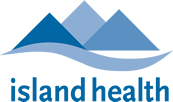program EXPECTATIONS OF THE RESIDENT
RELEVANT 2018 CPRB ACCREDITATION STANDARD
2.1.5: Pharmacy residents shall be individuals who hold to high professional ideals and who have a commitment to continued learning, beyond entry-level competencies.
PROFESSIONAL BEHAVIORS
Residents will exhibit appropriate professional behaviors and relationships in all aspects of practice, including technology-enabled communication, reflecting honesty, integrity, commitment, compassion, respect, altruism, respect for diversity, and maintenance of confidentiality.
Residents will demonstrate a commitment to excellence in all aspects of practice and to active participation in collaborative care and service delivery.
Residents will demonstrate a commitment to the well-being of other health care professionals to foster optimal patient care, and will promote a culture that recognizes, supports and responds effectively to colleagues in need.
Residents will engage in continuous improvement and enhancement of their professional activities through ongoing learning including developing, monitoring, and revising a personal learning plan to enhance professional practice, regularly analyzing their performance, using various data and other sources to identify opportunities for learning and improvement and engaging in collaborative learning to contribute to collective improvements in practice.
Residents are expected to meet deadlines set by rotation preceptors, project preceptors and the residency program. This includes deadlines for slide submission prior to BC wide case presentations, project poster and slides submission for Residency Research Night, and education leave/expense request forms for attending the Banff CSHP conference. All one45 assessment forms must be completed within one week of the form appearing in your inbox. Procedure logs must be kept up-to-date.
EXPECTATIONS OF RESIDENT PRIOR TO STARTING A ROTATION
Residents will contact their rotation preceptor (via email) 1 week prior to beginning the rotation to introduce themselves and ask/tell the preceptor the following:
What time and location to meet you on the first day?
Are there any prereadings or pre-rotation tasks that need to be completed to prepare for the rotation?
Notify the preceptor of any expected absences during the rotation. This could include Academic Half Day sessions, BC Case Presentations or Meetings with the Program Coordinator.
Submit their Personal Rotation Objectives using the Resident Personal Rotation Objectives Log in procedure logs in one45 prior to beginning the rotation so that the preceptor can review them.
The rotation summaries attached to the rotation schedule in one45 contain the preceptor contact information.
Residents will review the rotation Roadmap to become familiar with the goals and objectives of the rotation, as well as the rotation setting and activities.
Residents will send via email the comments from the Overall Comments/Feedback and Communication of Resident Continual Progress box at the bottom of the final direct patient care rotation assessment for their current rotation to their subsequent direct patient care rotation preceptor. This is to be done for the clinical orientation rotation, all core and elective direct patient care rotations and the precepting skills rotation.
Residents will document in the relevant Resident Personal Rotation Objectives Log at least 3 or 4 objectives that they would like to achieve during the rotation. These objectives could include things like…developing a deeper understanding of a particular disease state or therapeutic topic, becoming more competent/proficient at a particular clinical skill. These objectives will be discussed with the preceptor at the beginning of the rotation and the preceptor will work with the resident to find opportunities for the resident to meet these objectives throughout the rotation.
EXPECTATIONS OF RESIDENT FOLLOWING ROTATION OR ACTIVITY COMPLETION
Residents will complete one45 assessment forms in a timely manner. One45 assessment forms are due to be submitted within one week of rotation or academic half day session completion. This includes all self assessments, and evaluations of other residents (ie case presentations, journal clubs or inservice presentations delivered by other residents.
Failure to consistently complete one45 assessment forms on time will be considered a breach of professional behavior and will be subject to action by the residency coordinator.
EXPECTATIONS OF RESIDENT REGARDING COMPLETION OF ONE45 PROCEDURE LOGS
Residents are required to continuously accrue progress towards completion of required procedures and tasks throughout the residency year. This will avoid a last minute rush to catch up on tasks towards the end of the year where the workload related to residency completion increases.
Residents are expected to document completion of one45 procedure logs in real time throughout the year as they occur to avoid back dating of numerous late entries.
Progress on procedure log entries will be reviewed by the residency coordinator during each monthly meeting.
Failure to consistently complete required procedures and procedure log entries throughout the residency year will be considered a breach of professional behavior and will be subject to action by the residency coordinator.
RESIDENT LEARNING PORTFOLIO
Relevant 2018 CPRB Accreditation Standard
2.2.3.2: The resident shall use a learning portfolio or equivalent to facilitate self-assessment and provide evidence of skill development over the course of the program. The learning portfolio should include preceptor assessments, monthly reports, quarterly or other summative assessments, self-assessments, career objectives, clinical activities during rotations, awards, projects and other documentation relative to the resident's progress throughout the duration of the residency program.
The resident's one45 profile will serve as the resident's primary learning portfolio for their residency program.
The resident's one45 profile will contain their rotation and academic half day schedules, preceptor assessments for resident performance during rotations, resident self-assessments during rotations and other program activities, such as academic half days and presentations, as well as experience logs, personal rotation objectives, quarterly and summative assessments, career and program objectives and preceptor and resident self-assessment of their progress as it relates to their residency project.
The resident's clinical activities during their rotations will be documented in the Direct Patient Care-ITAR as part of the preceptor assessment and will be documented in the Resident Self Assessment-Direct Patient Care by the resident as part of the Assessment of the Resident.
As part of the learning portfolio, the resident will enter at least 3 or 4 “Reflections on Learning” in the relevant one45 procedure log.
The resident will forward any PowerPoint Presentations that the resident has delivered during their rotations such as case presentations, journal clubs and in-service educational sessions to the residency coordinator to be saved in the resident’s file on the residency program network drive. These presentations along with certificates the resident has earned, and project manuscript, or other written assignments will be kept as part of the resident’s learning portfolio.
MEETINGS WITH THE PROGRAM COORDINATOR
Each resident will meet with the Program Coordinator at regular intervals throughout the residency year.
The meetings will be in-person or via telephone, depending on the location of the resident and Program Coordinator. The meetings will be confidential.
The Program Coordinator will schedule the meetings using Outlook and the resident is expected to be on time for the meetings and will prepare and forward the meeting agenda to the residency coordinator in advance of the meeting. See Monthly Meetings Web Page in Resident’s Handbook
The agenda for these meetings will include personal goals, progress and experiences during rotations, review of assessments and evaluations and procedure logs, progress with meeting the goal level of performance over the course of the residency year, case presentations, status of residency project, career goals and planning, challenges faced and support, as well as anything else that the resident would like to discuss.
Prior to the meeting the resident will complete three meeting template documents and email to the program coordinator prior to the meeting: Resident Monthly Meeting Template, Monthly Project Progress Summary, and VIP Procedure Log Progress Report.
The Program Coordinator is also available to meet with residents at any other time, outside these regularly scheduled meetings, should the resident request it.

